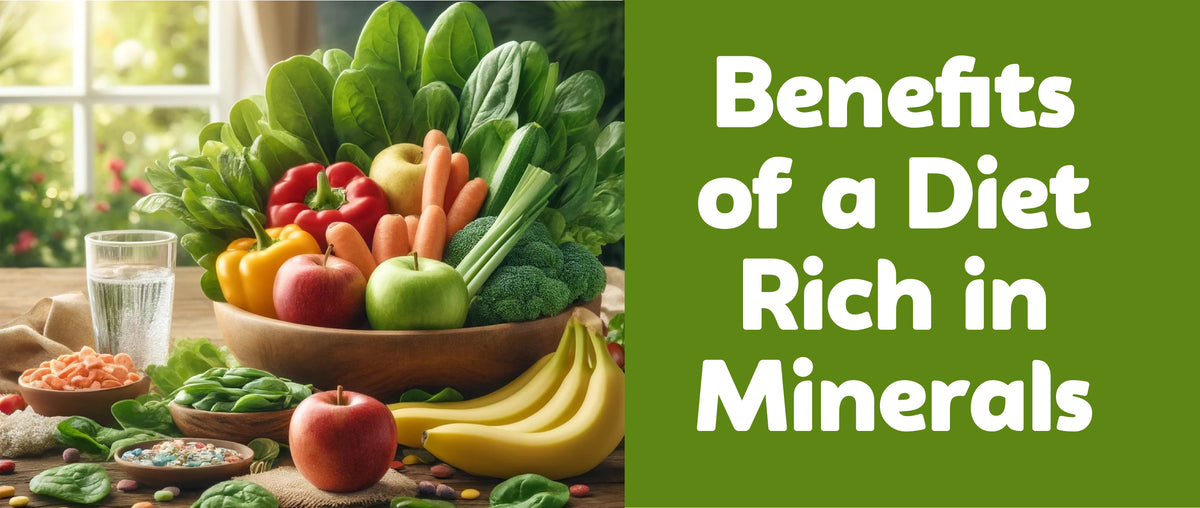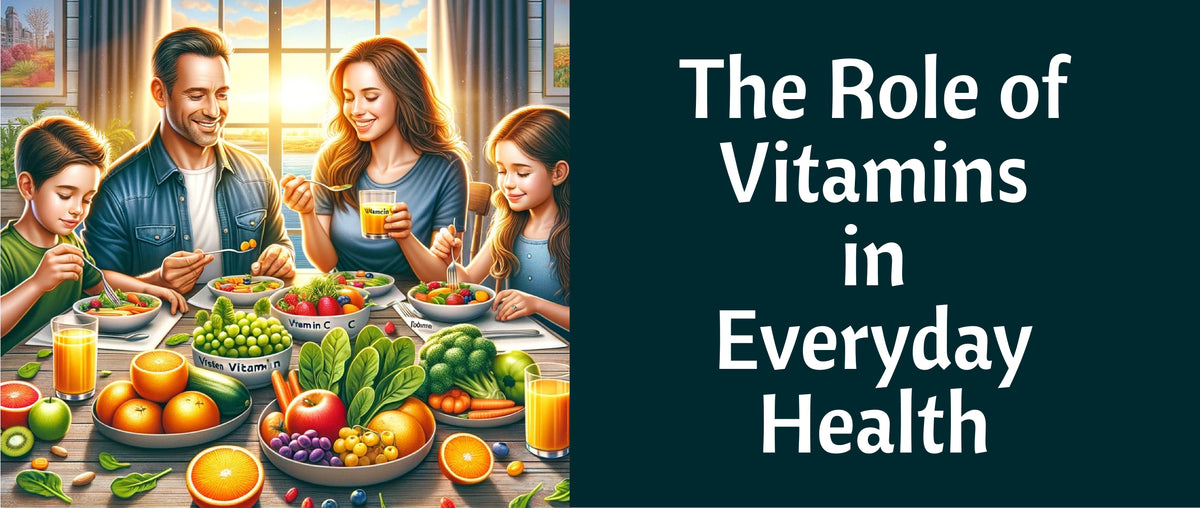Benefits of a Diet Rich in Minerals
A diet rich in minerals is crucial for maintaining overall health and well-being. Minerals play a vital role in various bodily functions, from bone health to muscle recovery. This article explores the benefits of a mineral-rich diet, highlights essential minerals, and provides practical tips for incorporating mineral-rich foods into your daily meals. Additionally, we'll discuss how this diet supports healthy eating, Muscle Recovery, best foods for weight loss, and more.
Key Takeaways
- Understanding the true meaning of veganism.
- Exploring the different types of veganism.
- Identifying the dietary choices and nutritional considerations for vegans.
- Recognizing the ethical and environmental implications of veganism.
- Tips for transitioning to veganism.
What Are Minerals?
Minerals are inorganic substances required by the body in small amounts for various functions. They are essential for processes like bone formation, muscle contraction, and fluid balance. Unlike vitamins, minerals are elements found in soil and water, which are absorbed by plants and animals. Without adequate minerals, the body cannot perform these functions efficiently, leading to various health issues.
Why Do We Need Minerals?
Minerals are necessary for numerous bodily functions. Calcium and phosphorus, for instance, are key components of bones, making them essential for bone health. Magnesium and potassium aid muscle contractions and nerve function, ensuring that muscles work efficiently and respond to stimuli. Iron is crucial for oxygen transport and energy metabolism, playing a significant role in maintaining energy levels and overall vitality. Zinc and selenium support the immune system, enhancing the body's ability to fight off infections and illnesses. Sodium and potassium maintain fluid balance and blood pressure, which are vital for cardiovascular health.
Minerals are necessary for numerous bodily functions:
- Calcium and phosphorus: Key components of bones, essential for bone health.
- Magnesium and potassium: Aid muscle contractions and nerve function.
- Iron: Crucial for oxygen transport and energy metabolism.
- Zinc and selenium: Support the immune system.
- Sodium and potassium: Maintain fluid balance and blood pressure.

Types of Minerals
Minerals are categorized into two types: macro-minerals and trace minerals. Macro-minerals, such as calcium, potassium, and magnesium, are required in larger amounts. Trace minerals, including iron, zinc, and selenium, are needed in smaller quantities but are equally important for maintaining health. Understanding the different types of minerals and their sources can help ensure you meet your dietary needs.
Health Benefits of Essential Minerals
Calcium
Calcium is vital for strong bones and teeth, muscle function, and nerve signaling. It also plays a role in blood clotting and maintaining a healthy heart rhythm. Foods rich in calcium include dairy products, leafy greens, and fortified plant-based milks. Adding leafy greens to salads, consuming dairy or fortified alternatives, and snacking on calcium-rich nuts can help meet your calcium needs.
- Sources: Dairy products, fortified plant-based milks, leafy greens
- Benefits: Bone strength, muscle function, nerve signaling
Potassium
Potassium supports heart health, muscle function, and fluid balance. It helps regulate blood pressure and prevents muscle cramps. Foods like bananas, oranges, potatoes, and spinach are excellent sources of potassium. Incorporating bananas into smoothies, adding potatoes to meals, and using spinach in salads or smoothies are practical ways to increase potassium intake.
- Sources: Bananas, oranges, potatoes, spinach
- Benefits: Heart health, blood pressure regulation, muscle function
Magnesium
Magnesium is crucial for energy production, muscle function, and bone health. It also aids in nerve function and regulating blood sugar levels. Nuts, seeds, whole grains, and leafy greens are rich in magnesium. Snacking on nuts and seeds, using whole grains in meals, and adding leafy greens to your diet can ensure sufficient magnesium intake.
- Sources: Nuts, seeds, whole grains, leafy greens
- Benefits: Energy production, muscle function, bone health
Iron
Iron is important for oxygen transport, energy levels, and immune function. It helps produce hemoglobin, which carries oxygen in the blood. Sources of iron include beans, lentils, and fortified cereals. Including beans in soups and salads, consuming lentils regularly, and choosing iron-fortified cereals are effective ways to boost iron levels.
- Sources: beans, lentils, fortified cereals
- Benefits: Oxygen transport, energy levels, immune function
Zinc
Zinc supports immune function, wound healing, and DNA synthesis. It also helps in cell division and growth. Foods rich in zinc include legumes, and seeds. Adding legumes to meals, using seeds as snacks or toppings, and including in your diet can enhance zinc intake.
- Sources: Brazil nuts, seafood
- Benefits: Antioxidant, thyroid function, immune support
Selenium
Selenium acts as an antioxidant, supports thyroid function, and boosts immunity. It helps protect cells from damage. Brazil nuts, are good sources of selenium. Snacking on Brazil nuts, including seafood in meals, and consuming regularly can help meet selenium requirements.
Also Read
Mineral-Rich Foods
Incorporating a variety of mineral-rich foods into your diet can help you meet your nutritional needs. Nuts and seeds, for example, are excellent sources of magnesium, zinc, and selenium, and they are also rich in healthy fats and proteins. Almonds, sunflower seeds, and pumpkin seeds can be used as snacks, added to salads, or blended into smoothies. Beans are high in iron, potassium, and magnesium, and are also rich in fiber, which aids in digestion. Including lentils, chickpeas, and black beans in soups, stews, salads, and side dishes can boost mineral intake.
Avocados are rich in potassium, magnesium, and healthy fats, making them a versatile addition to various dishes. They can be added to salads, spread on toast, or blended into smoothies. Berries are packed with antioxidants and essential minerals like potassium. Blueberries, strawberries, and raspberries can be used in smoothies, oatmeal, yogurt, or eaten as a snack. Yogurt and cheese are excellent sources of calcium and protein. Greek yogurt, cottage cheese, and plant-based alternatives like vegan cheese can be used as snacks, breakfast items, or in smoothies.
How to Ensure Adequate Mineral Intake
To ensure adequate mineral intake, it is important to follow balanced dietary guidelines and include a variety of foods from different food groups. Dietary guidelines recommend consuming a mix of fruits, vegetables, whole grains, proteins, and dairy or fortified alternatives. Variety is key to getting a broad spectrum of nutrients. If dietary intake is insufficient, consider supplements, but always consult a healthcare provider first.
Healthy Eating and Mineral-Rich Foods
Maintaining a balanced diet that includes a variety of mineral-rich foods supports overall health and weight management. Incorporating foods like leafy greens, nuts, and seeds can enhance your diet's nutritional value. A healthy diet includes fruits and vegetables, which are rich in vitamins, minerals, and fiber; whole grains, which provide essential nutrients and energy; lean proteins, which are important for muscle repair and maintenance; and healthy fats, which support brain function and overall health.
Best Foods for Weight Loss
Foods rich in minerals can aid in weight loss by supporting metabolic functions and promoting satiety. Low-calorie, nutrient-dense foods like berries, beans, and avocados are effective for weight management. Berries are low in calories and high in antioxidants and minerals. Leafy greens are nutrient-dense and low in calories, making them ideal for weight loss. Beans are high in fiber and protein, promoting fullness and aiding in weight management. Including these foods in your diet can help achieve weight loss goals while ensuring adequate mineral intake.
Muscle Recovery
Minerals like magnesium and potassium are essential for muscle recovery post-exercise. Consuming foods like bananas, nuts, and yogurt can help replenish these vital nutrients. Bananas are high in potassium and help prevent muscle cramps. Nuts provide magnesium and protein, which are crucial for muscle repair. Yogurt is high in protein and calcium, supporting muscle recovery. Including these foods in your post-exercise snacks can enhance muscle recovery and overall performance.
Healthy Snacks for Kids
Offering kids healthy snacks that are rich in minerals can support their growth and development. Options like yogurt, berries, and nuts are nutritious and kid-friendly. Yogurt is high in calcium and protein, which are great for bone health. Berries are packed with vitamins, minerals, and antioxidants, making them a healthy and tasty snack. Nuts provide essential minerals and healthy fats, which are important for overall growth. Incorporating these snacks into your child’s diet can promote healthy eating habits and support their development.
Healthy Diet
A healthy diet includes a balance of essential minerals, vitamins, and macronutrients. Incorporate diverse food sources to meet your nutritional needs and promote overall health. Components of a healthy diet include fruits and vegetables, which are rich in essential nutrients and fiber; whole grains, which provide energy and essential minerals; lean proteins, which are important for muscle health and repair; and healthy fats, which support brain function and overall wellness. Following a balanced diet can help maintain optimal health and prevent nutrient deficiencies.

Kombucha and Healthy Drinks
Kombucha and other healthy drinks can provide additional minerals and antioxidants. Including beverages like kombucha in your diet can enhance your mineral intake. Kombucha is a fermented tea rich in probiotics and minerals, supporting gut health and digestion. It also contains antioxidants, which help fight free radicals in the body. Other healthy drink options include smoothies, which can be made by blending fruits, vegetables, and nuts for a nutrient-dense drink, and herbal teas, which provide hydration and various health benefits. These drinks can be a tasty and nutritious addition to your diet.
Vegan Cheese
Vegan cheese can be a good source of calcium and other minerals, especially when fortified. It offers a dairy-free alternative for those looking to increase their mineral intake without consuming animal products. Vegan cheese is often fortified to provide calcium for bone health, making it a suitable option for those with lactose intolerance or following a vegan diet. It can be used in a variety of dishes, including sandwiches, salads, and pasta, providing a tasty and nutritious alternative to traditional dairy cheese.
High Protein Snacks
High protein snacks that are also rich in minerals support muscle health and overall nutrition. Examples include nuts, seeds, and dairy alternatives like yogurt and vegan cheese. Nuts and seeds provide a good source of magnesium, zinc, and healthy fats, making them an ideal snack for muscle repair and overall health. Yogurt and vegan cheese offer a high protein content and essential minerals like calcium, supporting muscle recovery and bone health. Including these snacks in your diet can help meet your nutritional needs and support overall wellness.
Low Calorie Food
Low-calorie, mineral-rich foods can help with weight management while ensuring you get essential nutrients. Options include leafy greens, berries, and legumes. Leafy greens are nutrient-dense and low in calories, making them ideal for weight loss. Berries are low in calories and high in antioxidants and minerals, providing a healthy and tasty snack. Legumes, such as beans and lentils, are high in fiber and protein, promoting fullness and aiding in weight management. Incorporating these foods into your diet can help achieve weight loss goals while ensuring adequate mineral intake.
Plant-Based Diet
A plant-based diet naturally includes many mineral-rich foods, supporting overall health and sustainability. Incorporating a variety of plant-based sources ensures adequate mineral intake. Foods such as fruits, vegetables, nuts, seeds, and legumes are rich in essential minerals and provide numerous health benefits. A plant-based diet can help reduce the risk of chronic diseases, support weight management, and promote overall wellness. Following a plant-based diet can also contribute to environmental sustainability by reducing the demand for animal-based products.
Conclusion
A diet rich in minerals is essential for maintaining optimal health. By including a variety of mineral-rich foods in your diet, you can support bone health, muscle function, and overall wellness. Adopting a balanced diet that includes these vital nutrients is a step towards a healthier lifestyle. Remember to incorporate a mix of fruits, vegetables, whole grains, proteins, and healthy fats into your meals to ensure you get a broad spectrum of essential minerals. Whether you are looking to improve your overall health, support muscle recovery, or manage your weight, a mineral-rich diet can provide the necessary nutrients to help you achieve your goals.
Do you enjoy vegan food? We have a list of vegan restaurants in India to help you find delicious options in your area!










